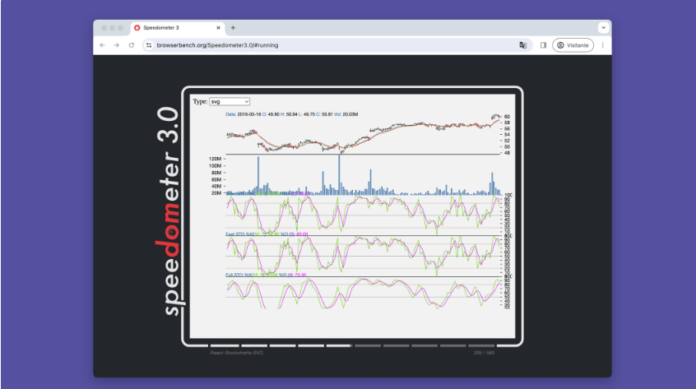Apple, Google, Microsoft and Mozilla have released Speedometer 3.0, a new version of the performance test for browsers. The test now involves larger, more complicated web applications, as well as more functions and APIs, to reflect the evolution of the internet in the six years since Speedometer 2.0.
Speedometer was originally created by Apple’s WebKit team and released in 2014. Four years later came version 2.0, the result of a partnership with Google. In 2022, a minor update to version 2.1 was released.
Now, with the arrival of Mozilla, the three main rendering engines on the market are represented: Blink/V8 (Google Chrome), Gecko/SpiderMonkey (Mozilla Firefox) and WebKit/JavaScriptCore (Apple Safari). Microsoft Edge uses the same foundation as Google Chrome, but the company made its contribution nonetheless.
Speedometer 3.0 is more comprehensive
Until now, all tests have involved variations of a dummy to-do app, which is used to measure responsiveness and performance when adding, organizing, and completing items in this app. Speedometer 3.0 goes further, including news pages, charting tools, and text and code editors. With this, the test will go through frameworks that are more popular today, such as React, Vue and Angular, among others.
“The primary goal of Speedometer 3 is to reflect the real-world web as best as possible, so that users benefit as a browser improves its benchmark score,” the announcement statement reads.
The new test is available for anyone who wants to get an idea of how their preferred browser is performing on their computer.










